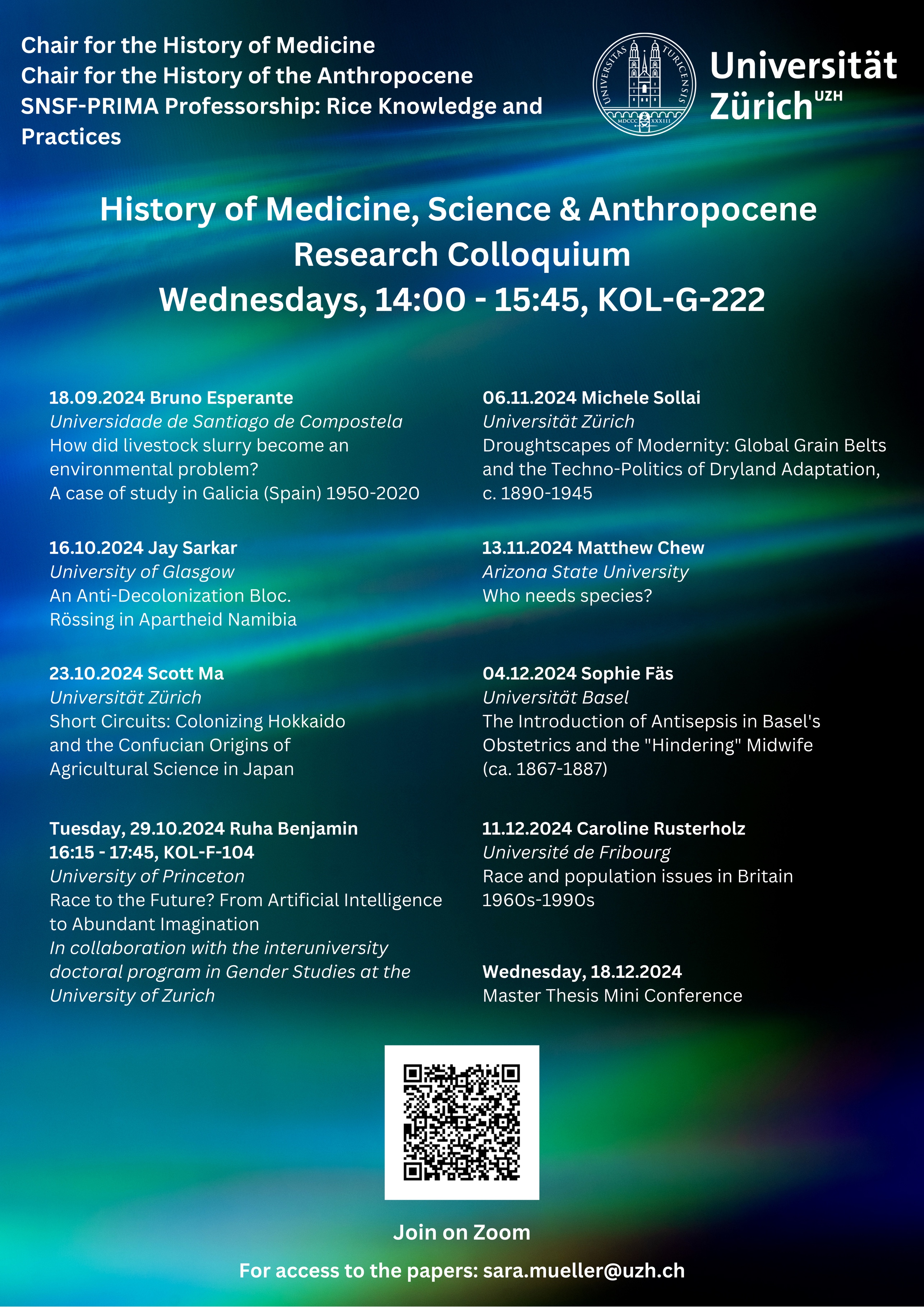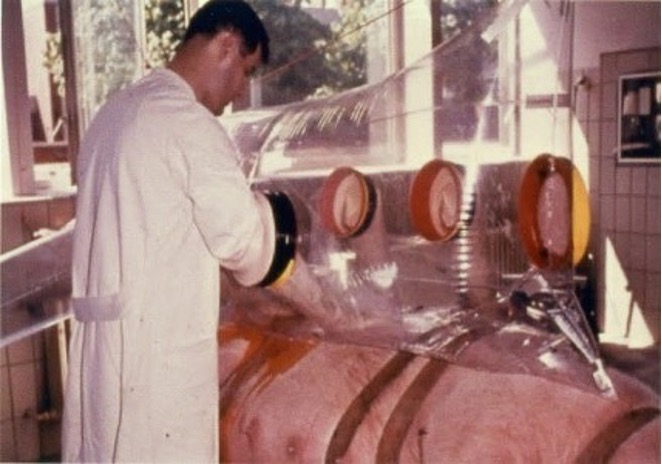History of Medicine Department
The History of Medicine Department is part of the Institute of Biomedical Ethics and History of Medicine within the University of Zurich (UZH). It is an interdisciplinary chair and the team participates in research and teaching in the Faculty of Medicine and the Faculty of Philosophy. Prof. Dr. phil. Flurin Condrau is the chairman of the History of Medicine Department.
The researchers of the History of Medicine Department are also members of the Center « History of Knowledge » (Center of Excellence of UZH and ETH Zürich) and participate in the AG Medical Humanities.
The Department of History of Medicine stems from the History of Medicine Institute, founded in 1951. From 1957 to 1971, the German-American medical historian, physician and ethnologist Erwin H. Ackerknecht (1906-1988) was the Chairman of the Institute. Ackerknecht made the Zurich Institute internationally known.
News
-
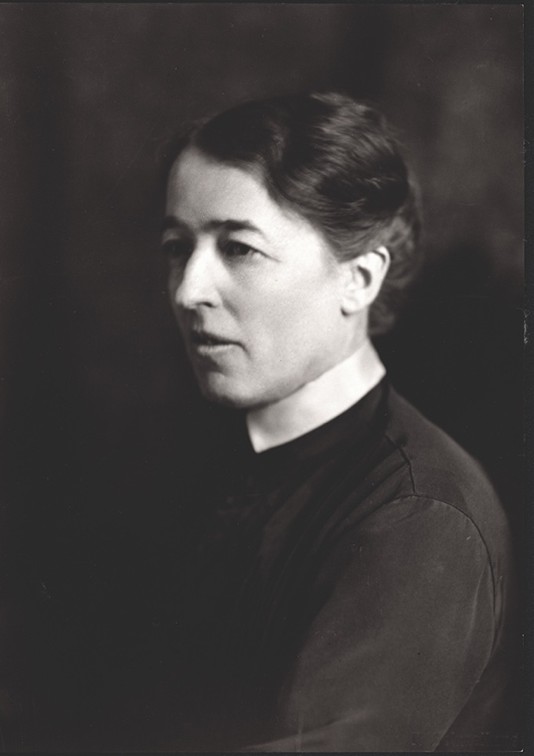
Archiv für Medizingeschichte, Nachlass Hedwig Frey (1877-1938)
Ehrung von Hedwig Frey durch Gesellschaft zu Fraumünster:
Die Gesellschaft zu Fraumünster ehrt mit ihrem Neujahrsblatt Hedwig Frey, die erste Professorin für Anatomie und zweite Professorin überhaupt an der Universität Zürich 1924. Die beiden Artikel von Andrea Spörri-Altherr und Prof. Caroline Maake schöpfen hierzu aus dem Nachlass im Archiv für Medizingeschichte.
-
Leander Diener: Crafting Deep Time
Leander Diener, Postdoc und Lehrbeauftragter an der Universität Zürich, hat im September 2025 seinen Artikel "Crafting deep time: Tempotechnical practices in experimental geology, 1788–1888–1988" in Time & Society veröffentlicht.
-

Prkachin: Wired Together
Yvan Prkachin will shortly publish his first book, Wired Together: The Montreal Neurological Institute and the Origins of Modern Neuroscience with University of Chicago Press in January 2026.
-

SGGMN Jahrestagung 2025: History of Medicine in Times of Crisis
Der Lehrstuhl für Medizingeschichte der UZH freut sich, am 24.10.2025 diesjährige Tagung der Schweizerischen Gesellschaft für Geschichte der Medizin und Naturwissenschaften SGGMN ausrichten zu dürfen.
-
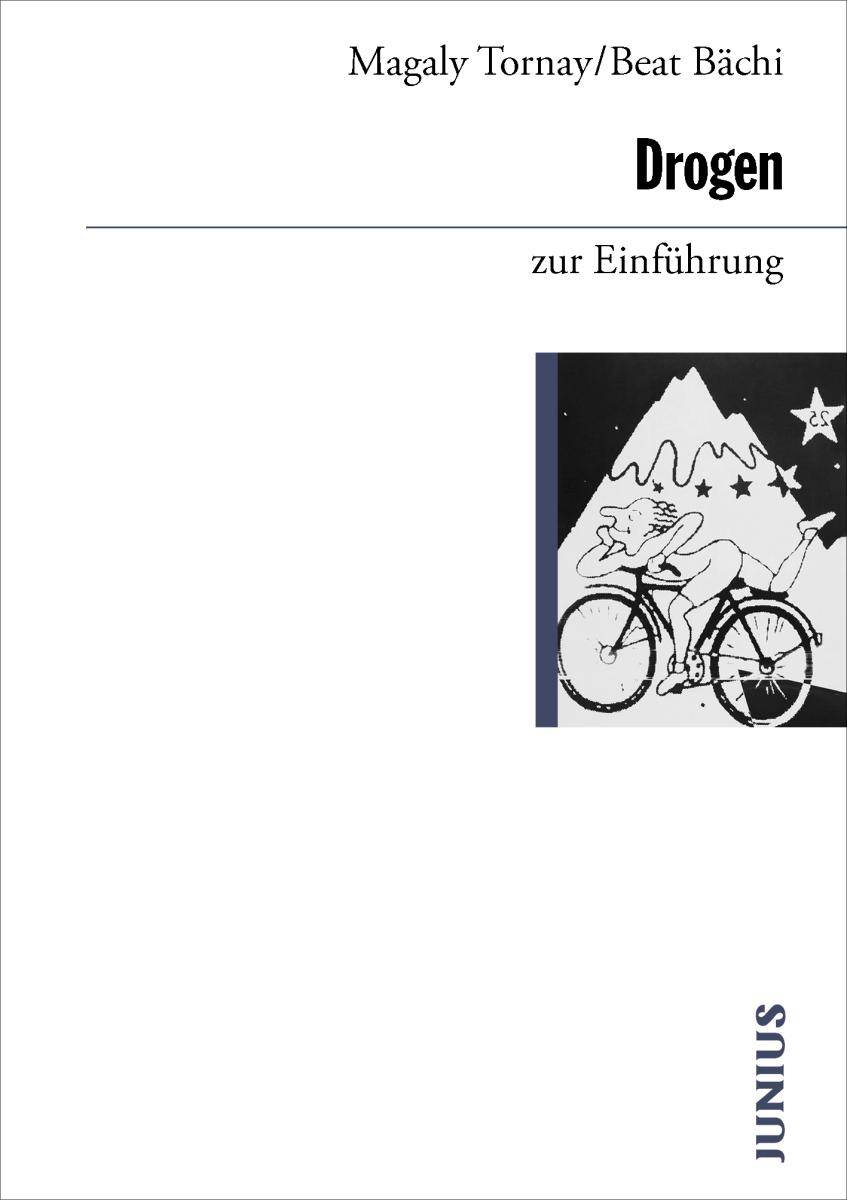
Bächi & Tornay: Drogen zur Einführung
Beat Bächi und Magaly Tornays Buch "Drogen zur Einführung" ist bei Junius erschienen. Der Band führt in die bunte wie oft schockierende oder halluzinierende Geschichte der Drogen ein.
-
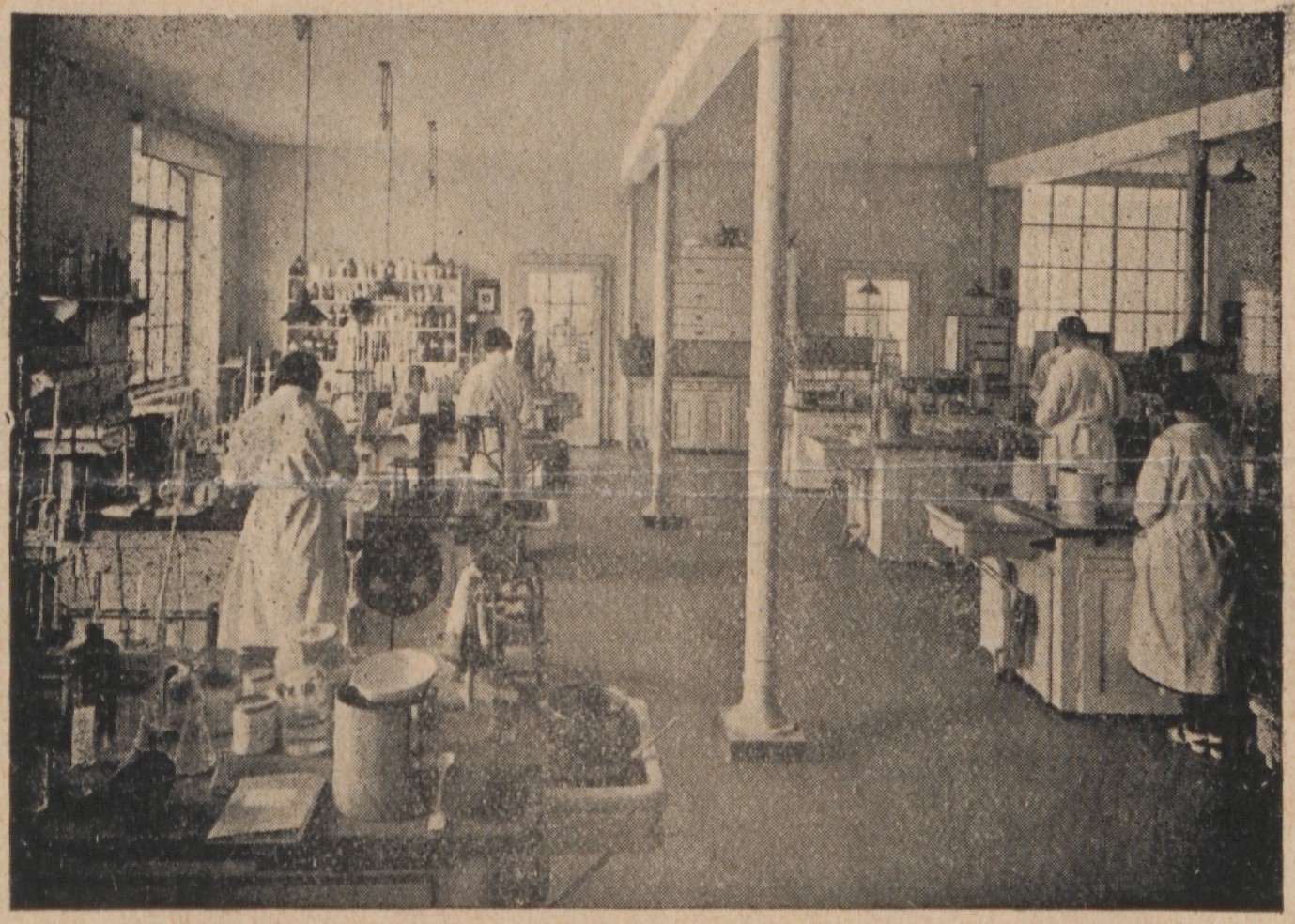
Lola Wilhelm presents her forthcoming book in Münster
Lola Wilhelm presents her forthcoming book Formulating development: How Nestlé shaped the aid industry at the University of Münster.
-

Historicizing Farm Animals: Keynote Lecture by Hannah Landecker on 11th of June
The SNSF funded project Farm Animals in the Anthropocene at the Chair for the History of Medicine invites to the public Keynote Lecture Eat, Grow, Oxidize, Phosphorylate. Antioxidants and Enzymes in the Remaking of Animal Metabolism in the 20th Century by Hannah Landecker, UCLA.
-
Lola Wilhelm's new publication: 'Tchernobâle' Reappraised. Technological Risk in Europe's Post-Stockholm Environmental Politics
Lola Wilhelm, Postdoc at the Chair for the History of Medicine, has recently published the chapter "'Tchernobâle' Reappraised. Technological Risk in Europe's Post-Stockholm Environmental Politics" in the book "Environmental Regulation and the History of Capitalism". Find the link to the open access publication here.
-
Call for Papers - "History of Medicine in Times of Crisis"
From pandemics to environmental crisis, the 2020s have underscored the complex, often unequal impact of global health emergencies. The SGGMN Annual Conference 2025 invites scholars to explore how past health crises inform today’s urgent challenges. We seek contributions examining historical responses to crises, from authoritarian health systems and anti-vaccination movements to grassroots resilience. Join us in Zurich on 24th of October 2025 to rethink the role of medical history in times of upheaval. Abstracts (max. 250 words) and a short CV are due by 13th of June 2025.
Dr. Lola Wilhelm (lola.wilhelm@uzh.ch). -
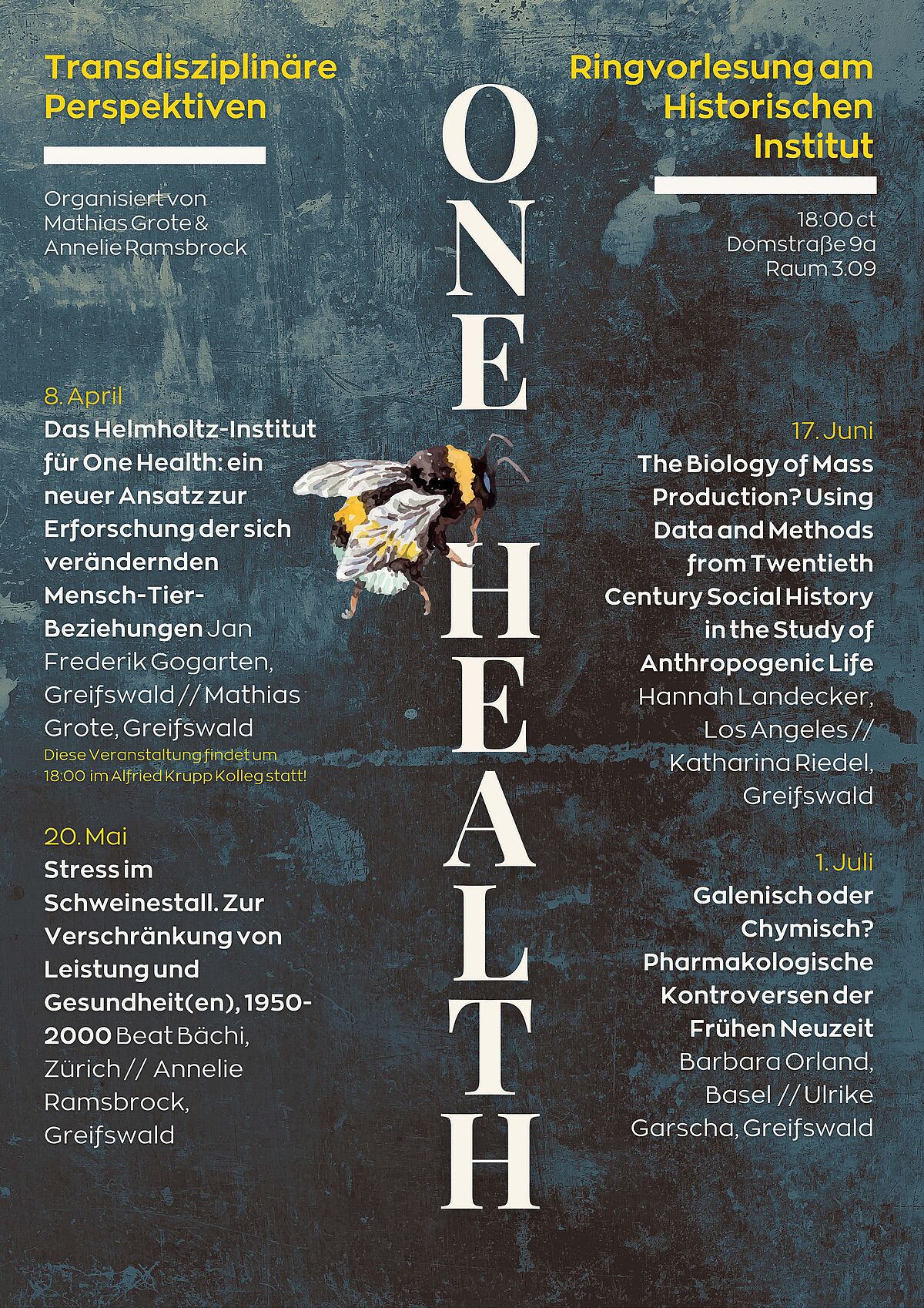
Beat Bächi an Vortragsreihe zu One Health in Greifswald
Dr. Beat Bächi, Postdoc und Projektleiter des SNF-Projekts Nutztiere im Anthropozän, gibt am Dienstagabend, dem 20. Mai 2025, einen Vortrag in Greifswald. Im Rahmen der Ringvorlesung des Historischen Instituts an der Universität Geifswald spricht Bächi zu "Stress im Schweinestall. Zur Verschrankung von Leistung und Gesundheit(en), 1950-2000".
